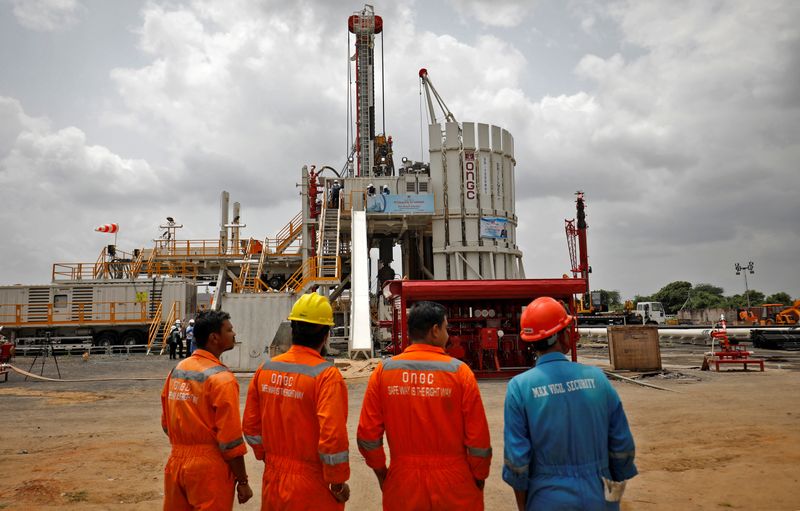LONDON – Oil prices edged higher on Friday and were on track for weekly gains, supported by the prospect of a tight market due to rising gasoline consumption in the United States in summer, and also the possibility of an EU ban on Russian oil.

Source: Reuters
Brent crude was up 64 cents, or 0.6%, at $118.04 at 1338 GMT, and was on track for a gain of about 5% this week.
U.S. West Texas Intermediate (WTI) crude rose 11 cents, or 0.1%, to $114.20 a barrel. WTI is set for a weekly gain of 0.6%.
“Oil prices have risen to the highest level since end of March, benefiting from renewed declines in U.S. oil inventories,” said UBS analyst Giovanni Staunovo.
U.S. gasoline stocks fell by 482,000 barrels last week to 219.7 million barrels, U.S. Energy Information Administration said on Wednesday. The start of summer driving season in the United States normally entails increased consumption.
“The U.S. driving season and strong travel demand should help (prices). With supply growth lagging demand growth, the oil market is likely to stay undersupplied. Hence, we remain positive in our outlook for crude prices,” Staunovo added.
Both benchmark crude contracts were also supported as the European Commission continued to seek unanimous support of all 27 EU member states for its proposed new sanctions against Russia, with Hungary posing a stumbling block.
European Union countries are negotiating a deal on Russian oil sanctions that would embargo shipment deliveries but delay sanctions on oil delivered by pipeline to win over Hungary and other landlocked member states, officials said.
Hungary’s resistance to oil sanctions – and the reluctance of a handful of other countries – has held up implementation of a sixth package of sanctions by the 27-member EU against Russia over its invasion of Ukraine.
“We believe that a sharp contraction in Russian oil exports could trigger a full-blown 1980s style oil crisis and push Brent well past $150 per barrel,” Bank of America (NYSE:BAC) said in a note.
Oil prices jumped after the Iranian revolution in 1979 and a long war between Iran and Iraq (1980-88), although a global recession soon hindered fuel demand and oil prices dropped back.
Prices have gained about 50% so far this year.
OPEC and allies, a group known as OPEC+, is set to stick to last year’s oil output deal at its June 2 meeting and raise July production targets by 432,000 barrels per day, six OPEC+ sources told Reuters. OPEC+ members would thereby rebuff Western calls for a faster increase to lower surging prices.

